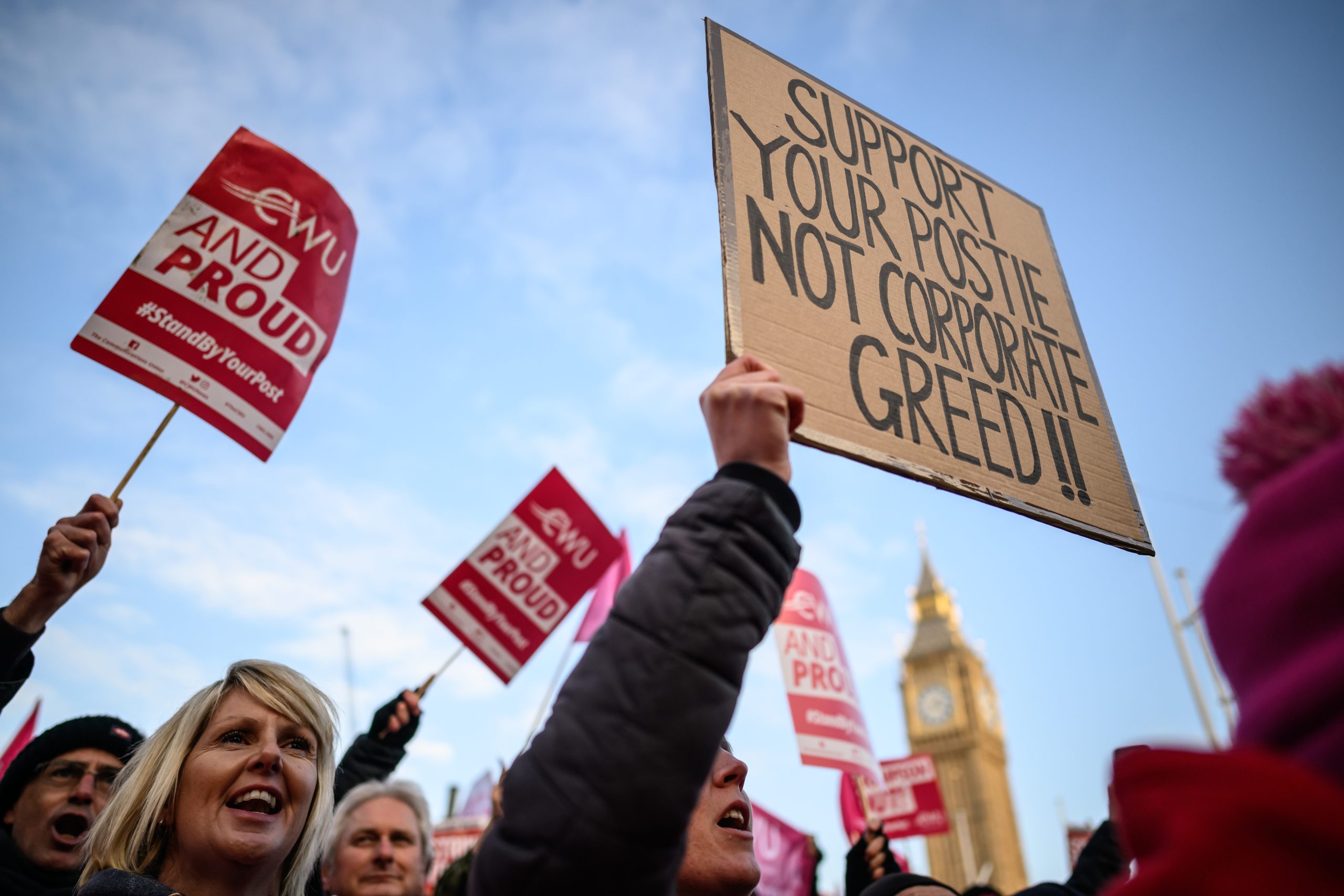Last summer, a landslide defeat threw a shambolic Tory government out of power. After a pandemic that showed the fundamental importance of workers to society in a way not seen since the war — and in the wake of a wave of strikes in 2022, which saw people rising up to defend their living standards — a public tired of constant decline handed Labour an immense majority. This was a historic mandate for change led by the Labour Party. But despite this victory and the positive first step of the Employment Rights Bill, change hasn’t been felt by enough people.
The same is true for the trade union movement, which — despite spearheading some of the government’s most popular measures, such as the New Deal for Working People— is still struggling to grow as a whole. For millions, there’s still too much month at the end of the money. Stagnating wages aren’t keeping up with skyrocketing bills, the price of everything never seems to stop rising, and the housing crisis staggers on. Too many people only see things getting worse, and don’t believe that what we in the organised labour movement are saying is a compelling enough offer. In 2024, the number of workers in unions dropped to just 22 percent, the lowest recorded union membership since 1995.
The challenges these people face can’t be resolved without organising as workers. But countless people who feel like things are stacked against them don’t feel that we are the answer. Instead, in their demoralisation, they choose to hear the siren song of the far-right. This is why the Communication Workers Union (CWU) wants to commit the Trades Union Congress (TUC) to a significant rethink on its industrial and political work.
We hope that through a diverse working group, new ways to improve the TUC’s structures and purpose can emerge that will help to begin the reorganisation of working-class organising. We want this to include an enhanced democratic structure, which would mean a re-election process for the TUC general secretary and deputy general secretary. This will be a bold, positive step forward for a TUC that many workers don’t know anything about, and from which many trade unionists want a deeper sense of strength and purpose.
If you’re in a traditionally unionised workplace— or if you’re one of the Amazon warehouse workers, outsourced hospital cleaners or app employees who make up such a huge number of unorganised workers— there should be a sense that the TUC is at the forefront of improvements to your life. There’s always talk about how to revive the movement, and the answer is simple but difficult: instead of internal competition and fumbling, we need workers to be organised, to be developing our movement, and making it relevant to this century.
The CWU has always believed that trade unionism is about more than servicing members— it’s about organising for a better future. I am convinced that tens of millions of people would engage with this idea — and, just like generations before them, stand up to fight for themselves. But to do this, we can’t continue to be trapped in structures that don’t reflect the urgency of the need to fight and reverse the reality of long-term decline. We’ve got to restructure the TUC based on principles of outwardness, unity, and renewed relevance.
To strengthen that message of hope in the first place, we urgently need a fundamental renewal of our movement’s democracy. We need structures that increase our collective power and deliver far more serious outcomes. Let’s be clear: the trade union movement in Britain is at a crossroads. Either we modernise and organise around the real needs of working people, or we continue to oversee decline.
If we want to rebuild the strength of workers in this country, we must start by strengthening the TUC itself, and our motion sets out a clear path to achieve this. The moment is now — let’s not waste it.
